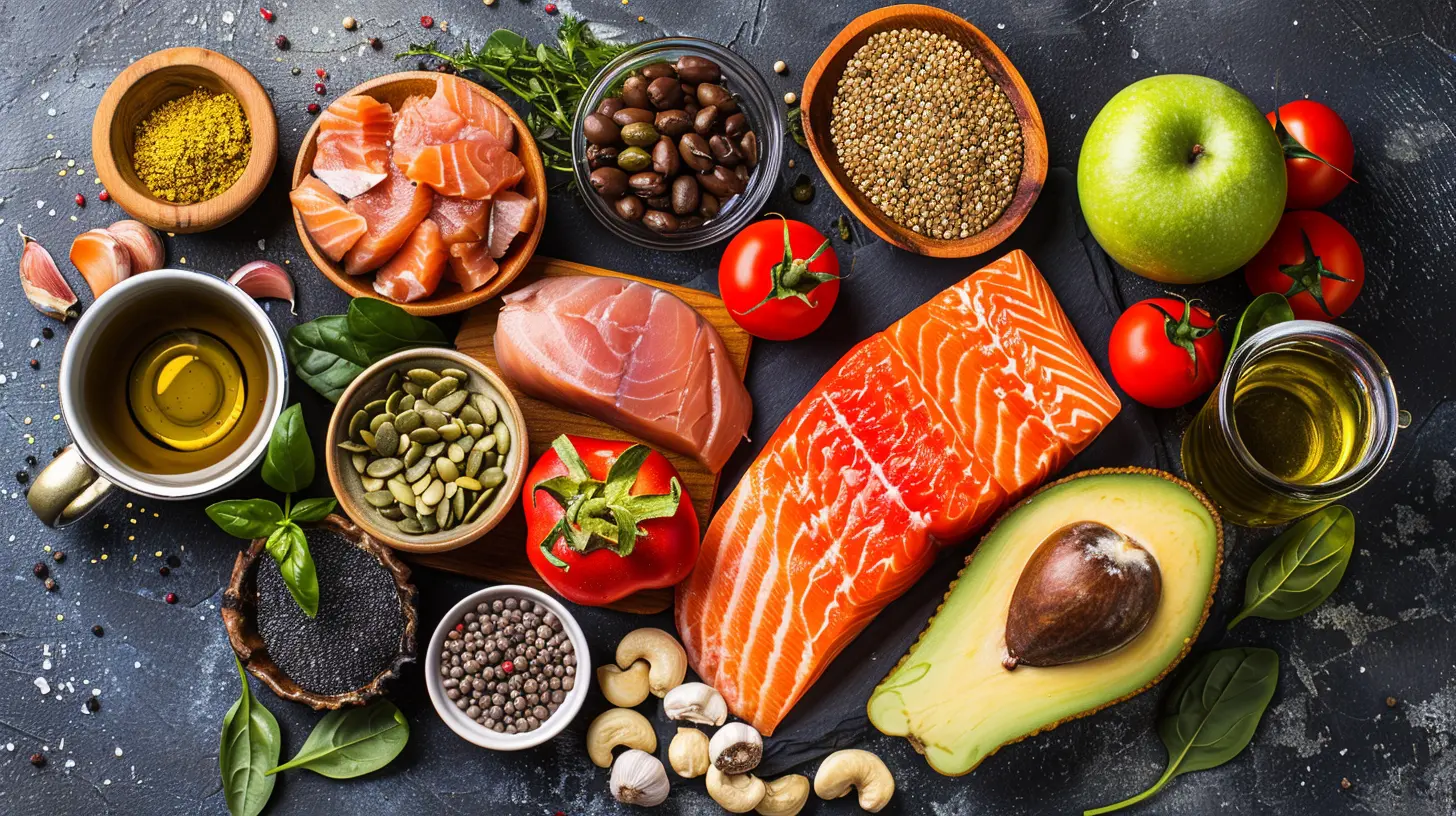Is Keto Right for You? Factors to Consider Before Starting
2 July 2025
The ketogenic (keto) diet is one of the most popular diets out there, promising everything from rapid weight loss to improved mental clarity. But before you dive headfirst into a world without bread and pasta, you need to ask yourself: Is keto right for you?
Not every diet fits everyone's lifestyle, body type, or health goals. So, before you start filling your plate with avocados, eggs, and cheese, let’s break down the key factors to consider before committing to keto. 
What is the Keto Diet?
The ketogenic diet is a low-carb, high-fat diet that shifts your body’s primary energy source from carbohydrates to fats. This process, known as ketosis, forces the body to burn fat for energy instead of glucose.A standard keto diet typically includes:
✅ 70-80% fat
✅ 15-25% protein
✅ 5-10% carbohydrates
By drastically reducing carbs, your body enters a metabolic state where it starts relying on stored fat for fuel. Sounds awesome, right? But before you jump in, let’s see if this diet aligns with your goals and lifestyle. 
Factors to Consider Before Starting Keto
1. Your Weight Loss Goals
If weight loss is your primary goal, keto might be a great fit. Many studies suggest that a low-carb, high-fat diet can lead to significant weight loss, often faster than traditional low-fat diets.💡 Why? Cutting carbs reduces water retention, and ketosis turns your body into a fat-burning machine. But remember, keto isn't magic—consistency and portion control still play a role.
However, if you're looking for just a quick fix, keto may not be ideal. Sustainable weight loss comes from long-term habits, not short-term restrictions.
2. Your Current Eating Habits
Are you someone who loves bread, rice, and pasta? Cutting carbs to just 5-10% of your daily intake can be a huge adjustment. If your diet is currently high in carbs, transitioning to keto may come with some challenges.❌ No more bagels, cereals, or sugary snacks.
✅ Emphasis on healthy fats like avocado, nuts, and olive oil.
If you're used to eating a lot of processed carbs, prepare for potential cravings and withdrawal-like symptoms (aka the "keto flu").
3. Your Lifestyle & Activity Level
If you’re an endurance athlete or someone who engages in high-intensity workouts, keto may initially feel like a struggle. Since your body primarily uses carbohydrates for quick energy, reducing carbs can lead to fatigue during workouts.However, some athletes thrive on a targeted or cyclical keto diet, where they strategically add carbs around workouts. So, if you're highly active, you may need to tweak the diet to fit your lifestyle.
4. Your Relationship with Food
Keto is restrictive, and if you have a history of disordered eating, eliminating entire food groups may not be the best idea. Any diet that feels too restrictive can potentially lead to binge eating or an unhealthy fixation on food.If the thought of never eating pizza, pasta, or sweets stresses you out, keto might not be the best choice. Instead, focusing on a balanced diet with whole foods may be a healthier approach.
5. Your Medical History & Health Conditions
Everyone’s body responds differently to diets, and your medical history plays a crucial role in determining if keto is safe for you. Let’s look at some health conditions where keto might (or might not) be beneficial:✅ Type 2 Diabetes – Studies show that keto can help regulate blood sugar levels, but it must be monitored carefully.
✅ Epilepsy – In fact, keto was originally developed as a medical diet for epilepsy patients.
❌ Kidney Disease – High protein intake can strain the kidneys, so if you have any kidney issues, keto might not be suitable.
❌ Gallbladder Issues – Since keto is high in fats, those without a gallbladder may struggle to digest them properly.
Always consult your doctor before making drastic dietary changes, especially if you have pre-existing conditions.
6. Your Willingness to Plan & Cook
Keto isn't just about cutting carbs—it requires meal planning, reading ingredient labels, and cooking your own meals. Many processed foods contain hidden carbs, so dining out or relying on convenience foods becomes trickier.If you prefer quick, grab-and-go meals, keto might feel overwhelming. But if you love cooking and experimenting in the kitchen, you’ll probably enjoy the challenge!
7. Your Budget
Eating keto can be pricey. Healthy fats like avocados, nuts, quality meats, and dairy products often cost more than carb-heavy staples like rice and beans.If you’re on a tight budget, you may need to carefully plan meals to make keto affordable. Buying in bulk, choosing budget-friendly proteins like eggs and canned fish, and shopping for seasonal produce can help cut costs. 
The Pros and Cons of Keto
✅ Pros:
✔ Rapid weight loss – Many people shed pounds quickly, especially in the beginning.✔ Increased energy & mental clarity – Some swear by keto for improved focus and steady energy.
✔ Reduced cravings – High-fat meals keep you feeling full longer.
✔ Potential blood sugar control – Lowering carb intake can help stabilize blood sugar levels.
❌ Cons:
❌ The Keto Flu – Expect fatigue, headaches, and brain fog in the first week as your body adapts.❌ Restrictive – No bread, pasta, or sugary treats can feel limiting.
❌ Social Challenges – Eating out or attending social events can be tricky.
❌ Digestive Issues – Constipation is common due to lack of fiber from whole grains.

Tips for a Successful Keto Journey
If you’ve decided that keto is right for you, here are some tips to make the transition easier:✅ Start Slow – Gradually reduce carbs instead of cutting them overnight.
✅ Stay Hydrated – Drink plenty of water and electrolytes to avoid keto flu symptoms.
✅ Focus on Whole Foods – Stick to healthy fats, quality proteins, and low-carb vegetables.
✅ Prepare for Cravings – Keep keto-friendly snacks handy (think nuts, cheese, and dark chocolate).
✅ Listen to Your Body – If something feels off, tweak your approach or consult a nutritionist.
Final Thoughts
So, is keto right for you? The answer isn’t one-size-fits-all. It depends on your goals, lifestyle, and how well your body responds to low-carb, high-fat eating.If you’re up for the challenge and willing to commit, keto can be an incredibly effective tool for weight loss and overall health. But if you feel like it’s too restrictive or unsustainable, that’s okay too—there are many other healthy eating approaches to explore.
The key is to choose a diet that works for you, makes you feel good, and is sustainable in the long run. Because at the end of the day, the best diet is the one you can stick to!
all images in this post were generated using AI tools
Category:
Keto DietAuthor:

Eileen Wood
Discussion
rate this article
1 comments
Nina Wade
Great insights! Thanks for sharing this information!
July 17, 2025 at 2:54 AM

Eileen Wood
Thank you! I'm glad you found it helpful!


